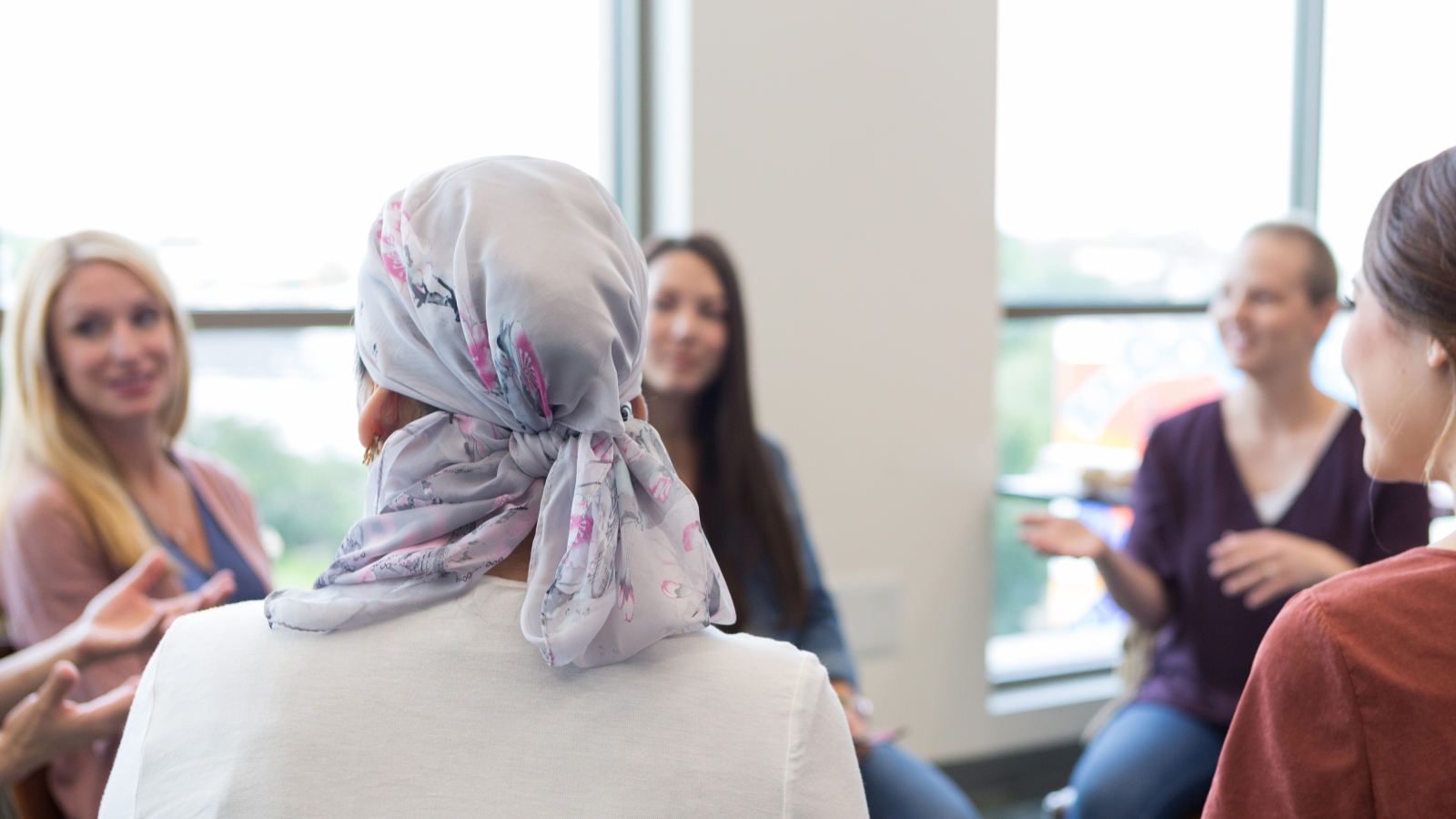<< Back
4 Things to Expect at Your First Cancer Support Group

December 27, 2024
Living with cancer is hard, which is why it’s so important to find the right support. But does the idea of joining a cancer support group feel intimidating?
To help ease your concerns, we turned to Caitlin McPhelimy, LPC, cancer support services program manager for Hartford HealthCare’s Cancer Institute. She shares what to expect at your first group meeting and how it can help you feel supported every step of the way.
1. It’s normal to feel nervous.
Joining a cancer support group can feel like a big step, but it’s also a chance to connect with people who get what you’re going through.
“When joining for the first time, expect a very warm and welcoming space,” says McPhelimy. “This is your opportunity to connect with others who understand more intimately what you are going through.”
Feeling unsure before your first meeting is okay, but don’t let it stop you. You might just find the support you didn’t know you needed.
> Related: 6 Questions to Ask After a Cancer Diagnosis
2. Every meeting is unique.
Support groups welcome everyone—whether you’re newly diagnosed, undergoing treatment or navigating survivorship. There are also dedicated groups just for caregivers.
“Meetings are usually loosely structured with no specific agenda,” says McPhelimy. “Conversations cover a wide range of topics based on what participants want to chat about.”
The discussions can vary, but common topics often include:
- Tips for managing side effects from treatment.
- Support for emotional and mental well-being.
- Guidance on what to expect throughout the journey.
- Practical advice or helpful resources.
> Related: 6 Tips to Get Through Chemotherapy
3. Just listening is totally okay.
Cancer support groups are all about creating a safe, supportive space where you can share experiences, ask questions and find personalized support.
But — you don’t have to speak up if you don’t want to.
“Sharing personal stories is not a requirement,” says McPhelimy. “Participants are encouraged to share if they feel comfortable, but there’s zero pressure. It’s perfectly fine to listen and take in the conversation.”
> Related: 5 Things Every Cancer Survivor Should Know
4. It’s a great way to build the support team you need.
Your medical team provides essential resources, but sometimes you just need to talk to someone who’s been there—or is still there.
“These groups allow participants to connect with others who truly understand their experiences, from managing treatment side effects to coping with emotions,” says McPhelimy. “That connection helps you feel like you belong and can make this challenging time feel less isolating.”
Hearing others’ stories can also help you feel more informed and empowered in your own care.
Find your cancer support group today.
These groups are open to everyone, free of charge and don’t require insurance or a referral. You can join in person or online—whatever feels most comfortable.
“Many people feel apprehensive at first, but you’ll likely be surprised by how positive and supportive the group energy is,” says McPhelimy. “It’s not about negativity or complaints.”
Support groups provide a safe and welcoming space to connect at your own comfort level.
“Whether you’re ready to share or just want to listen, support groups offer connection and understanding,” adds McPhelimy. “Why not give it a try? It might be just what you need.”